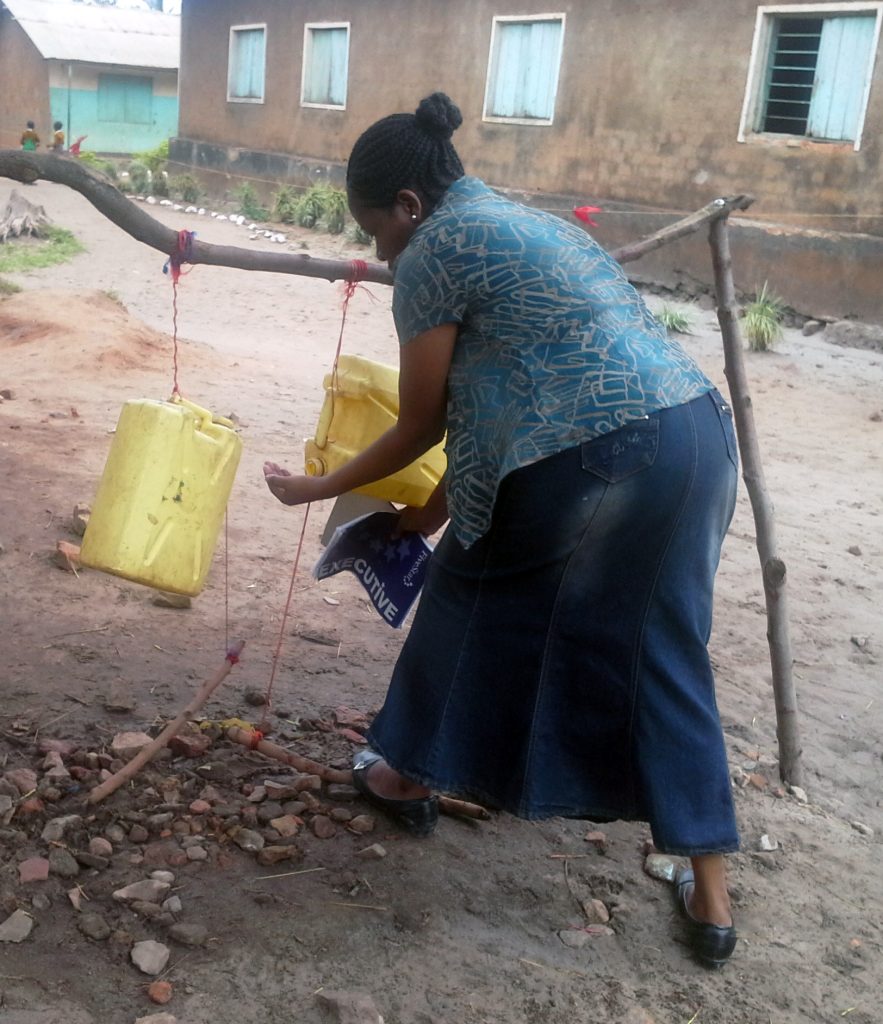High-quality, effective, and evidence-based service delivery for HIV care and prevention requires a broad continuum of integrated and linked services to ensure consistent and high-quality client management over time. With the World Health Organization’s (WHO) recommendation to “Treat All,” eligibility for antiretroviral therapy (ART) among People Living with HIV (PLHIV) is eliminated, and all populations and age groups are linked in one universal policy. This recommendation change erases the distinction between all groups. However, a substantial number of PLHIV still present late to care and have advanced disease, and require interventions that prioritize clinical packages to reduce mortality and morbidity and eventually enable them to become clinically stable [1].
Category: Human Resources for Health
Nursing Efficiency and Task-Sharing in Tanzania
I-TECH Tanzania led the development of the task-sharing policy guidelines for Health Sector Services approved in 2016 as well as the policy’s operational plan. While task-sharing is a widely known HIV service delivery efficiency strategy, still there is continues gaps between national strategies and actual implementation at the site-level [1,2].
Continue reading “Nursing Efficiency and Task-Sharing in Tanzania”
Building the Capacity of the Health Workforce in India
I-TECH India PL has worked with stakeholders to develop national training curricula for health care staff on delivering HIV care and treatment services. In addition, it has:
- Planned and implemented training programs for various cadres of clinical and program staff;
- Participated in medical officer training programs at the national level;
- Designed and conducted five regional continuing medical education (CME) courses in North, South, West and Northeastern regions on “Invigorating HIV Care” for ART center medical officers;
- Designed and conducted four workshops in two weeks reaching 164 ART counselors for improving care support and treatment services provided to key population clients accessing ART centre services in Maharashtra;
- Conducted National Distance Learning Seminars (webinars)—an average of 25 sessions per year on clinical- and program-related topics for the past five years reaching over 50% of ART Centers in India, with average participation of 1000 per session. These sessions are recorded and are available on YouTube channel “I-TECH India.”
- Conducted Regional Distance Learning Seminars (webinars)—an average of 60 sessions per year through 15 HIV/AIDS Centres of Excellence in more than six languages during the last five years reaching over 50 % of ART Centers in India, with average participation of 50 per session; and
- Coordinated certificate courses from UW on Leadership and Management in Health, Principles of STD (Sexually Transmitted Diseases) and HIV Research, Introduction to Epidemiology for Global Health, Clinical Management of HIV, and Fundamentals of Implementation Science for over 500 individuals during the past five years.
Clinic Ward-Based Outreach Team (WBOT) Program in South Africa
I-TECH supported the implementation of a Community Oriented Primary Care (COPC) phased intervention to enhance ward-based Outreach Team (WBOT).
Continue reading “Clinic Ward-Based Outreach Team (WBOT) Program in South Africa”
Caryl Feldacker

Caryl Feldacker, PhD, MPH, has over 20 years of international experience focused on ensuring quality public health programming and rigorous program monitoring and evaluation (M&E), including more than ten years conducting HIV-related implementation science research in sub-Saharan Africa. Dr. Feldacker is the co-principal investigator (PI) on the International Training and Education Center for Health (I-TECH) Integrated Voluntary Medical Male Circumcision (VMMC) program in Zimbabwe. Her current research focuses on digital health solutions to improve the quality of patient care while reducing provider workload and program costs. She is PI for four National Institutes for Health (NIH) studies using interactive, two-way texting (2wT) between patients and providers to improve patient retention in care, provide post-operative telehealth, and improve data quality in Malawi, Zimbabwe, and South Africa. For each initiative, she partners closely with ministries of health and local partners with the aim of helping strengthen monitoring and evaluation (M&E) and research capacity for sustained improvement. Her digital health interventions employ the open-source Community Health Toolkit in collaboration with Medic.
Her broad implementation and research experience includes exploring trends in adverse events in VMMC programs; closing HIV service delivery gaps; strengthening routine data quality for accurate and timely reporting; task-shifting of healthcare workers; understanding patterns in loss-to-follow-up within routine HIV program settings; strengthening integration of family planning into HIV-related care; and expanding electronic medical record systems to provide integrated patient care.
Her current collaborations include partnerships with Lighthouse Trust (Lilongwe, Malawi); Aurum Institute and The Centre for HIV-AIDS Prevention Studies – CHAPS (South Africa); and Zimbabwe Technical Assistance, Training and Education Centre for Health – Zim-TTECH (Harare, Zimbabwe).
Dr. Feldacker is an Associate Professor in the Department of Global Health in the School of Public Health at the University of Washington (UW). In addition to her work with I-TECH, Dr. Feldacker is affiliated with the UW Global Center for Integrated Health of Women, Adolescents, and Children (GlobalWACh) where she aims to translate 2wT-based advantages for the postpartum care context.
Program Highlights
Technical Support to the National HIV Response in Malawi
I-TECH seconded staff work in collaboration with government officers and program managers, and bring technical expertise to efforts to strengthen health systems. Continue reading “Technical Support to the National HIV Response in Malawi”
Stefan Wiktor

Stefan Wiktor, MD, is a physician with more than 25 years of experience in epidemiologic research and public health programs related to the control of infectious diseases. He leads I-TECH’s work on hepatitis prevention and control, and is Acting Professor in the Department of Global Health. Prior to joining I-TECH, Dr. Wiktor was the Team Lead of the World Health Organization’s Global Hepatitis Programme.
Dr. Wiktor previously worked at the U.S. Centers for Disease Control and Prevention (CDC) where he conducted research studies of HIV-1 and HIV-2 in Cote d’Ivoire, West Africa, and led a large-scale HIV/AIDS prevention and treatment program in Tanzania. His research showed that anti-retroviral medications were effective in preventing mother-to-child HIV transmission. Other research he did proved that antibiotics reduced bacterial infections in HIV-infected adults, a finding that led to the WHO recommendation for use of antibiotic prophylaxis to prevent deaths in HIV-infected adults.
Program Highlights
Global Health Security Agenda in Kenya
I-TECH Kenya’s Global Health Security Agenda (GHSA)-funded programs aim to advance the GHSA goals of preventing , detecting, and responding to disease threats to health security.
For the past 8 years, I-TECH Kenya has had a cooperative agreement with US Centers for Disease Control and Prevention (CDC) to work closely with the Kenya Ministry of Health (MOH) on multiple projects related to health security. The key objectives of these activities are preventing and reducing the likelihood of disease outbreaks, improving the efficiency and accuracy of the detection of communicable diseases, strengthening surveillance capacity and national and county levels for a rapid and effective response, enhancing Infection Prevention and Control (IPC) practices to prevent the emergence and spread of pathogens and antimicrobial resistant bacteria.
Prevention
Use IPC practices to combat antimicrobial resistance (AMR) and other microbial threats:
- Building capacity for IPC in health care facilities is a critical part of disease outbreak and AMR preparedness and prevention. In Kenya, I-TECH has partners with the CDC National Center for Emerging and Zoonotic Infectious Disease and Kenya MOH to support two model hospitals in developing capacity for quality improvement measures for strengthening evidence-based IPC practices, infrastructure, and tools including hand hygiene, waste management, injection safety, surgical site infections, and antimicrobial stewardship. As part of this IPC work, I-TECH created and piloted e-learning modules for IPC. The modules aim to build clinical skills and technical knowledge in infection prevention and control and antimicrobial stewardship among health care workers in low-resource settings, and have now been adopted by WHO.
- With the onset of the COVID-19 pandemic, I-TECH Kenya was able to play a leadership role in the country in assessing and improving facility readiness at the national and local level to handle COVID-19 cases and maintain the health care workforce.
- Current IPC activity is focused on surveillance for surgical site infections, an important cause of hospital acquired infections (HAIs).
Disease Prevention through Immunization Program Strengthening:
- I-TECH collaborated with the Kenya MOH, CDC Global Health Protection Division, and the CDC Global Immunization Division, to build and roll out an online mobile platform for capturing immunization data at the point of care.
Detection
Laboratory Information Systems Strengthening:
- In Kenya, I-TECH collaborated with the MOH and National Public Health Laboratory Services to enhance and strengthen laboratory information systems at the facility and national levels to improve timeliness and efficiency of testing and reporting results, specifically for AMR testing.
Response
Disease Surveillance and Response:
- I-TECH supports the Kenya MOH Surveillance Unit in the rollout of trainings for health care workers to routinely and consistently use the real-time surveillance reporting system in Kenya.
Health Information Systems in Kenya
In 2012, I-TECH designed and developed an electronic medical records (EMR) system, KenyaEMR, to support the care and treatment of HIV/AIDS. KenyaEMR is built on the OpenMRS platform. I-TECH supported the implementation of KenyaEMR in over 300 health facilities throughout Kenya—one of the largest open source EMR rollouts in Africa.
Field Epidemiology Training Program (FETP) in Tanzania

For Tanzania to meet a WHO-specified target of one or more epidemiologists per 200,000 population [1] it will require an additional 250 epidemiologists who are well-trained and geographically distributed in all regions of the country.
To help address this gap, I-TECH, in collaboration with the Centers for Disease Control and Prevention (CDC) and the Ministry of Health Community, Development, Gender, Elderly and Children in Tanzania, launched a new Intermediate Field Epidemiology Training Program (FETP) for mid-level health professionals.
Continue reading “Field Epidemiology Training Program (FETP) in Tanzania”